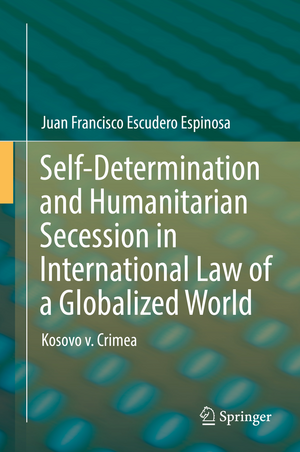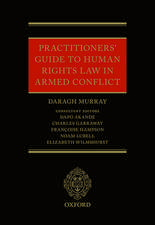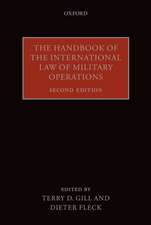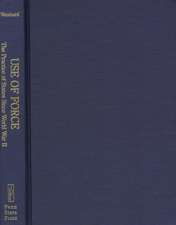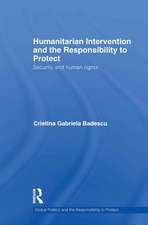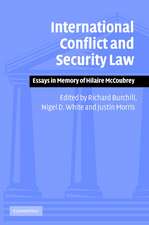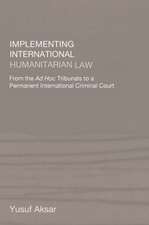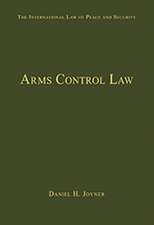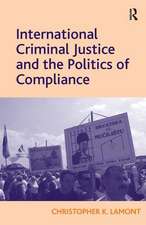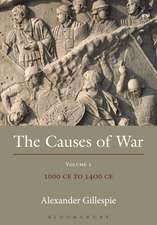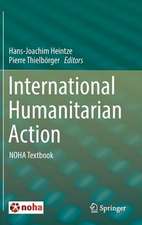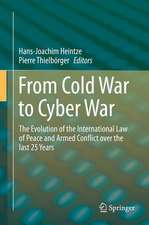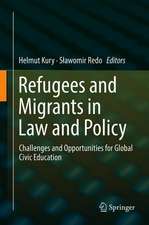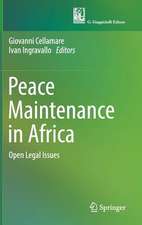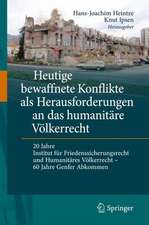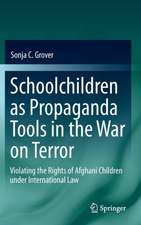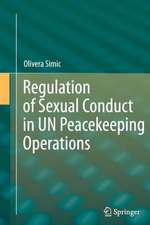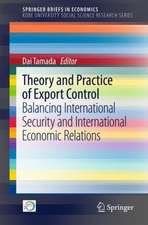Self-Determination and Humanitarian Secession in International Law of a Globalized World: Kosovo v. Crimea
Autor Juan Francisco Escudero Espinosaen Limba Engleză Hardback – 4 apr 2018
The work investigates the two cases so as to shed light on the international legal regime affecting entities that are smaller than a sovereign State. It analyzes the relevant principles of international law, the intention being to determine their scope and review them in light of the most recent practice and developments in international law.
In turn, the book examines and explains the events of relevance for international law that occurred in the changing situations in Kosovo and Crimea. On the basis of these legal considerations, it explores how the international community can respond when faced with situations that may violate international law, together with the effectiveness of various measures. It also discusses whether certain situations might be legitimate as a concept could now be emerging that secession may be justified in specific circumstances, such as serious and widespread violations of basic human rights.
| Toate formatele și edițiile | Preț | Express |
|---|---|---|
| Paperback (1) | 575.85 lei 38-44 zile | |
| Springer International Publishing – 9 dec 2018 | 575.85 lei 38-44 zile | |
| Hardback (1) | 700.10 lei 43-57 zile | |
| Springer International Publishing – 4 apr 2018 | 700.10 lei 43-57 zile |
Preț: 700.10 lei
Preț vechi: 823.64 lei
-15% Nou
Puncte Express: 1050
Preț estimativ în valută:
133.96€ • 140.24$ • 110.85£
133.96€ • 140.24$ • 110.85£
Carte tipărită la comandă
Livrare economică 07-21 aprilie
Preluare comenzi: 021 569.72.76
Specificații
ISBN-13: 9783319726212
ISBN-10: 3319726218
Pagini: 239
Ilustrații: XXX, 204 p.
Dimensiuni: 155 x 235 mm
Greutate: 0.51 kg
Ediția:1st ed. 2017
Editura: Springer International Publishing
Colecția Springer
Locul publicării:Cham, Switzerland
ISBN-10: 3319726218
Pagini: 239
Ilustrații: XXX, 204 p.
Dimensiuni: 155 x 235 mm
Greutate: 0.51 kg
Ediția:1st ed. 2017
Editura: Springer International Publishing
Colecția Springer
Locul publicării:Cham, Switzerland
Cuprins
Introduction.- Part I Self-Determination and Secession Versus Territorial Integrity in International Law: The Recognition of the Right to Self-Determination in International Law.- The Right to Self-Determination and Unilateral Secession.- Part II The Independence of Kosovo and Crimea in the Light of Contemporary International Law: Kosovo's Long Road to Independence in 2008.- The Crimea's Declaration of Independence and Annexation to Russia in 2014.- The Legality of the Secessions of Kosovo and Crimea.- Part III The Emergence of Humanitarian Secession as a Response to Humanitarian Crises: The International Community Faced with Illegal Secessions by Sub-State Units.- The Emergence of Humanitarian Secession as an International Response to Serious Violations of Human Rights.- Conclusion.
Notă biografică
Juan Francisco Escudero Espinosa is Associate Professor in Public International Law and International Relations at the University of Leon, Leon, Spain.
Textul de pe ultima copertă
This book addresses questions in connection with the international legal regime on demands for secession, which have arisen in various States. More specifically, it examines the unilateral declarations of independence by Kosovo in 2008, and by Crimea and its subsequent annexation by the Russian Federation in 2014.
The work investigates the two cases so as to shed light on the international legal regime affecting entities that are smaller than a sovereign State. It analyzes the relevant principles of international law, the intention being to determine their scope and review them in light of the most recent practice and developments in international law.
In turn, the book examines and explains the events of relevance for international law that occurred in the changing situations in Kosovo and Crimea. On the basis of these legal considerations, it explores how the international community can respond when faced with situations that may violate international law, together with the effectiveness of various measures. It also discusses whether certain situations might be legitimate as a concept could now be emerging that secession may be justified in specific circumstances, such as serious and widespread violations of basic human rights.
Caracteristici
Examins recent practice of States, studying comprehensively the cases of Kosovo and Crimea Reviews the role of the concept of self-determination, of recognition, of the attributes of statehood in international law Arguments for the admissibility of a status here termed ‘humanitarian secession’
